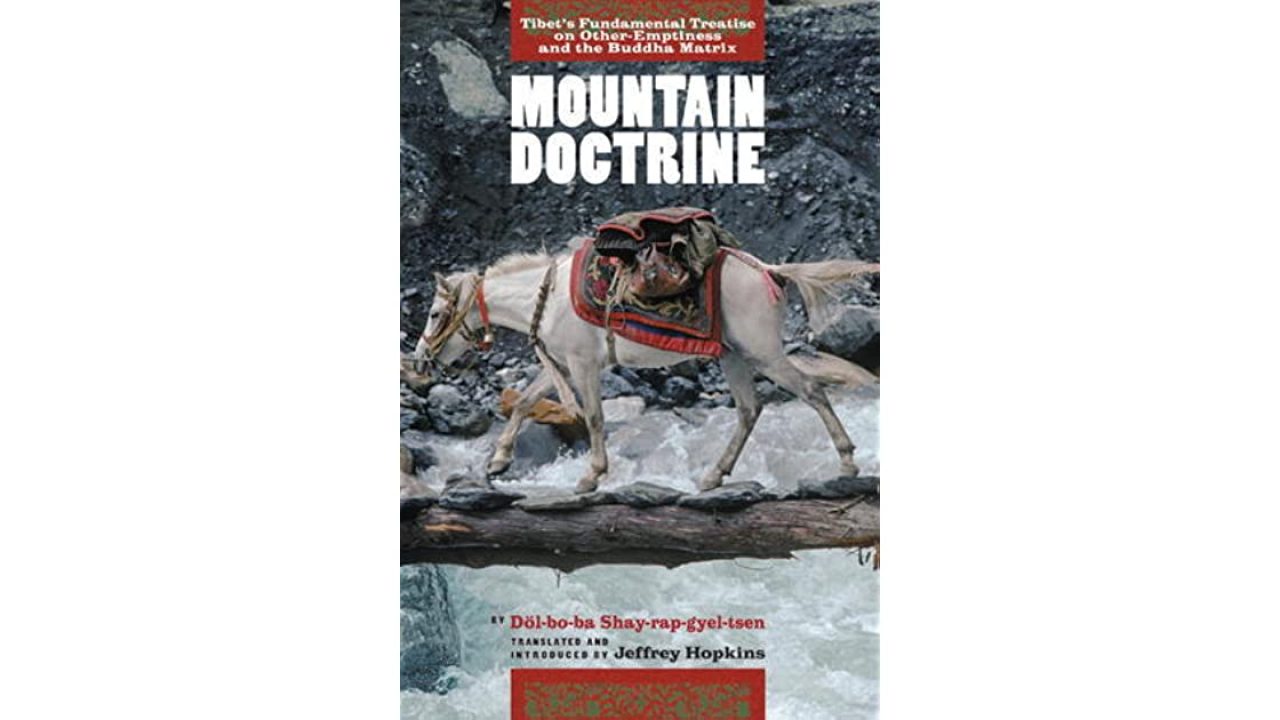Nineteenth
Two Truths
Self-emptiness is not the ultimate truth, which is of a different order of being. Döl-bo-ba describes self-emptiness as meaning that phenomena that cannot withstand analysis and are subject to disintegration are empty of their own nature. All conventionalities are self-empty, or self-emptinesses-the two terms being used interchangeably-and thus self-emptiness is a conventionality, not the ultimate. The actual ultimate truth is able to bear analysis, is permanent, and is definitive. Thorough-going release is brought about through the wisdom of other-emptiness.
Döl-bo-ba rejects the notion that the ultimate also could be self-empty, since then the ultimate would not exist at all. The mere finding that some phenomena are empty does not make all phenomena, such as the great liberation, also empty of themselves. The great liberation is empty of defects which are other than itself and do not exist in reality-but it itself is not empty of itself, just as a house is empty of humans but is not emptyof itself. The great liberation does not melt under examination; it can bear
analysis. In this sense, other-emptiness, the thoroughly established nature,
ultimately exists.
In Döl-bo-ba’s system the ultimate is true ultimately, and conventional truths are true conventionally. The body of the basic element of attributes exists in the dispositional mode of subsistence, but no conventionalities do. “Existing in the dispositional mode of subsistence” is the meaning of ultimately existing. Conversely, since other powered natures phenomena produced through the power of other causes and conditions are not the ultimate nature, they are empty of their own entities; they are selfs-empty, they do not exist in the dispositional mode of subsistence. The
ultimate is beyond the temporary nature of other-powered natures, which, like hail-stones, may appear solid but quickly disappear.
For Döl-bo-ba, dependent-arisings are limited to impermanent phenomena produced from causes and conditions, and, therefore, the ultimate cannot be a dependent-arising. Thus the ultimate truth-knowing itself by itself, devoid of the extremes of existence and non-existence-has a nature that is beyond the phenomena of dependent-arising, does not deteriorate from its own entity, and is not empty of its own entity. Jñanagarbha’s Path of Yogic Meditation says, “That which is not dependently produced and does not deteriorate from its own entity is called ‘the ultimate nature.
